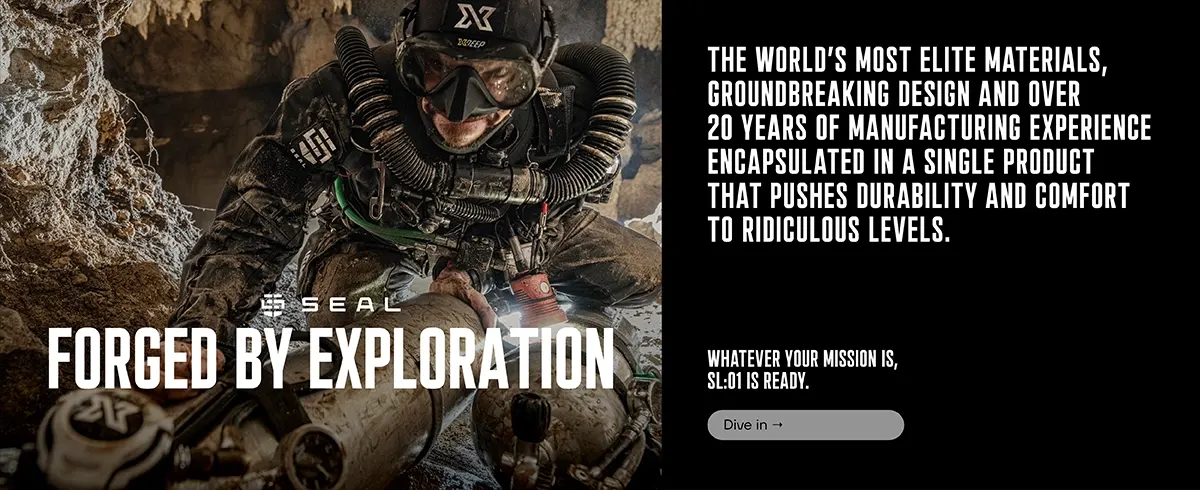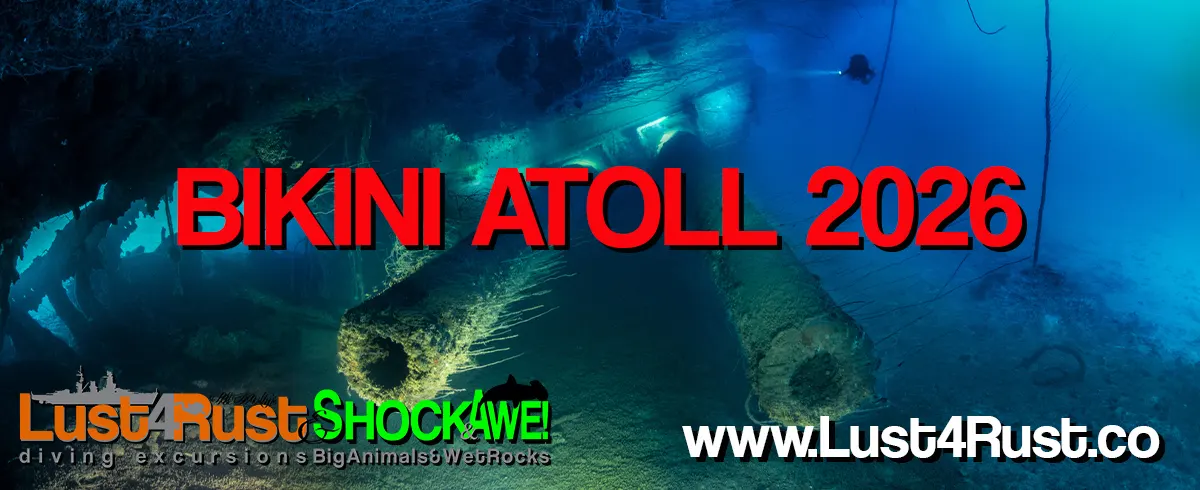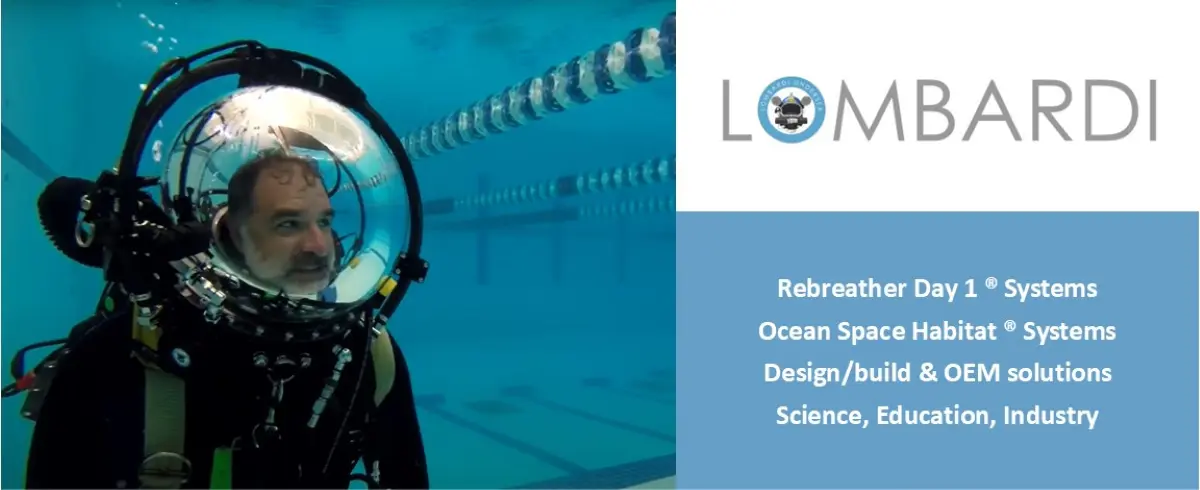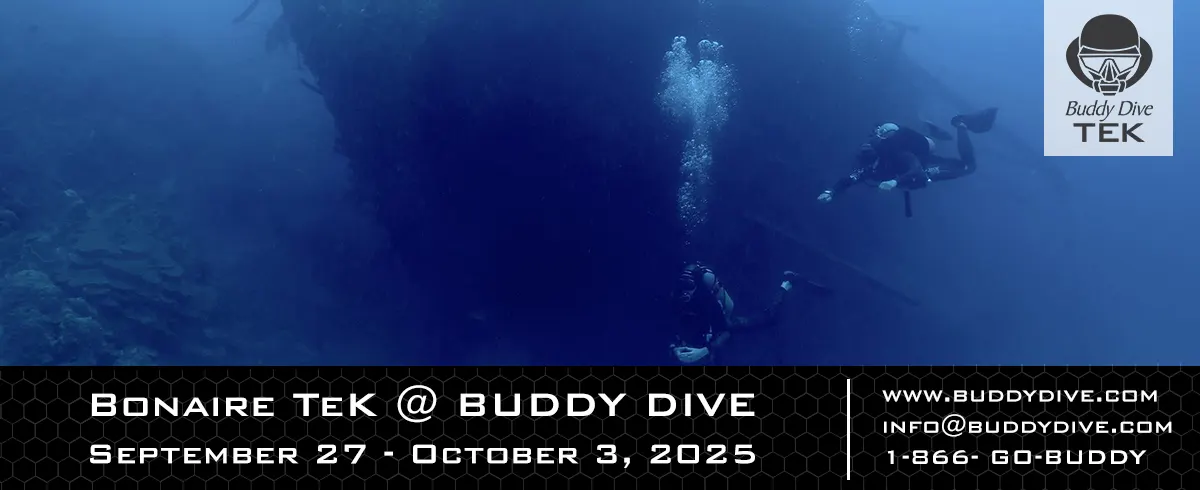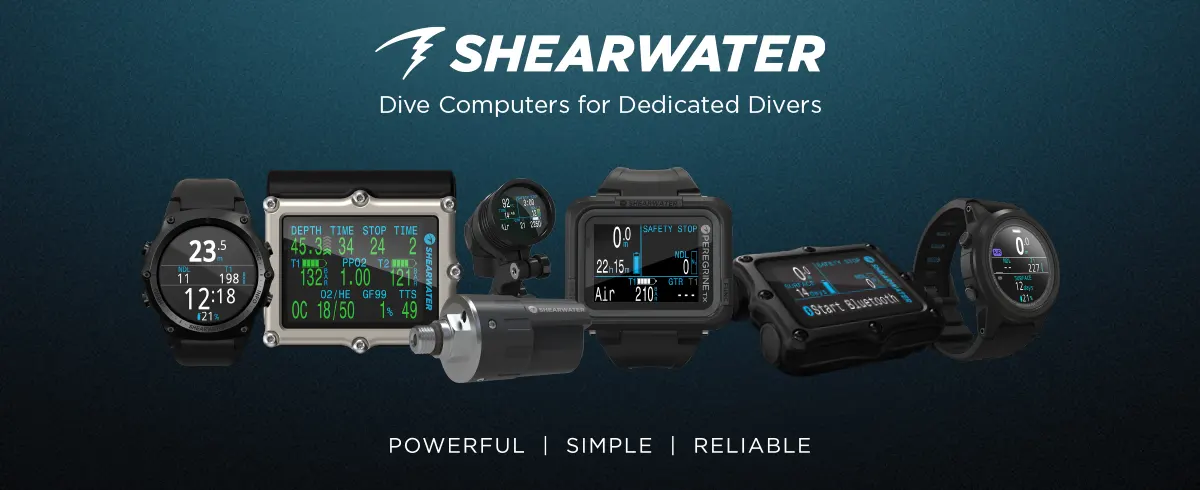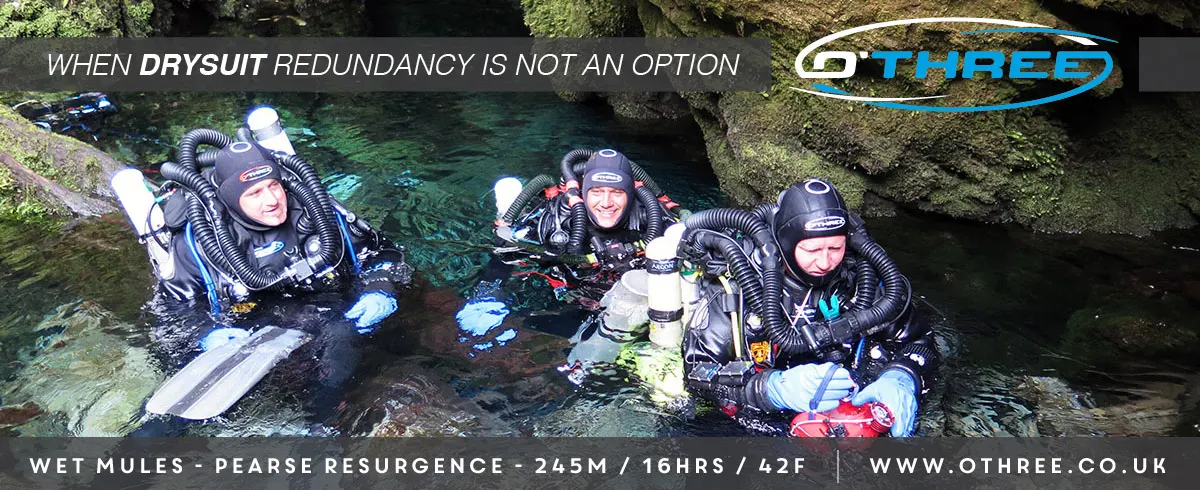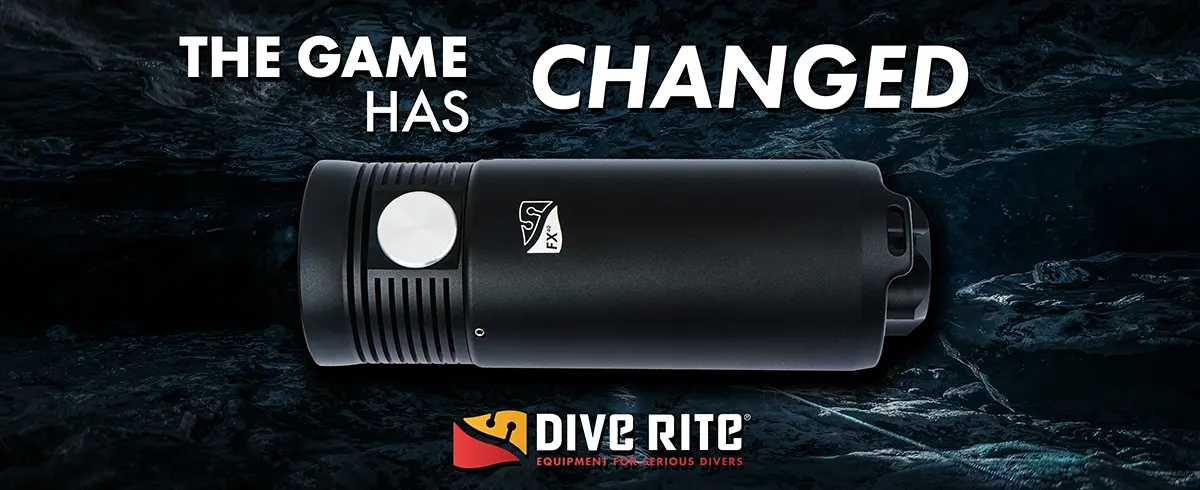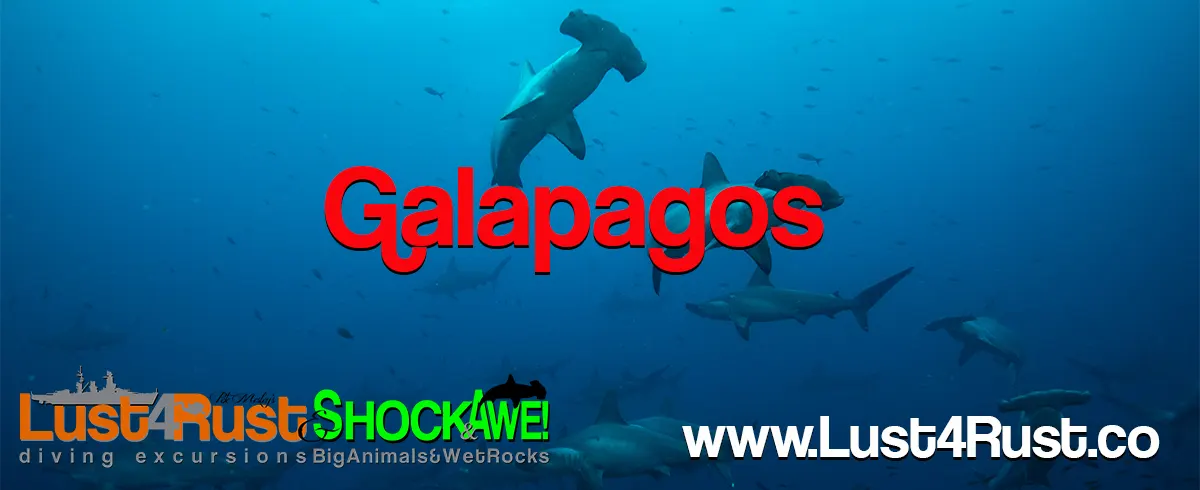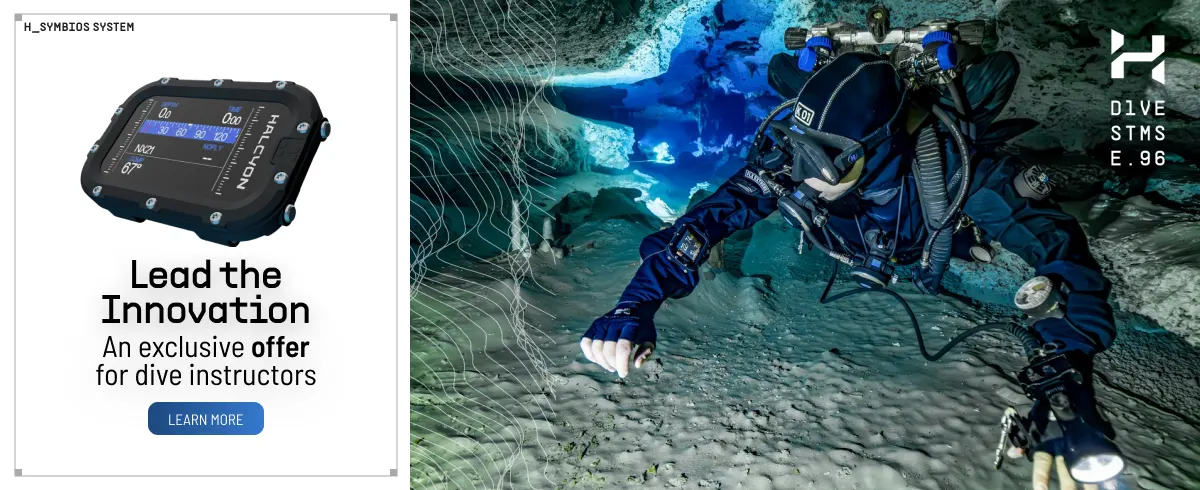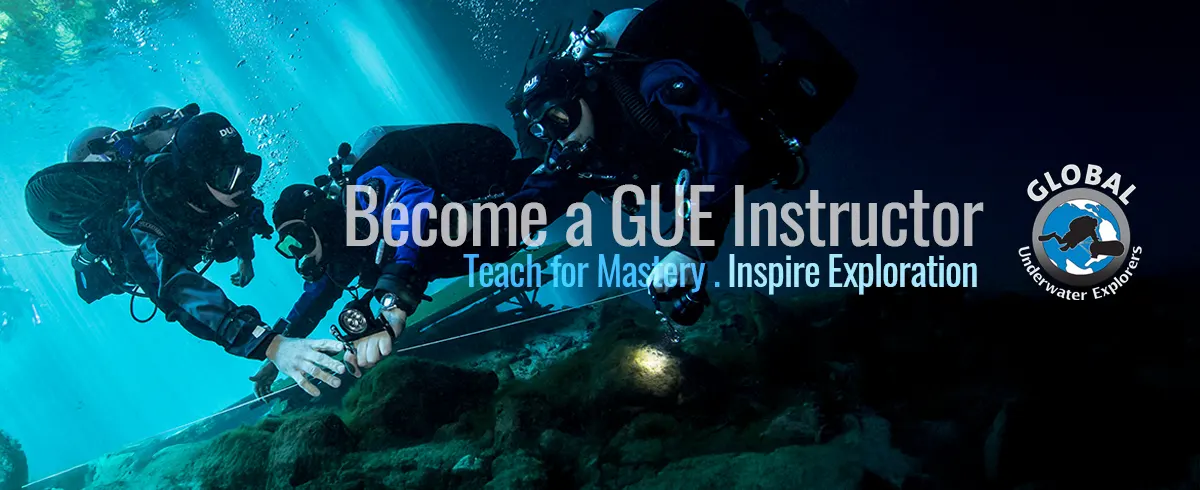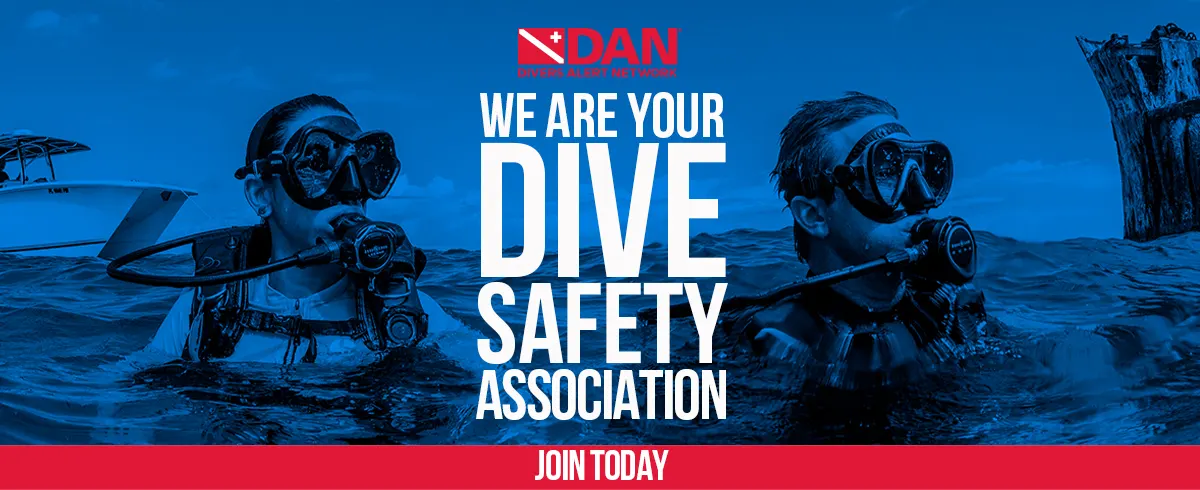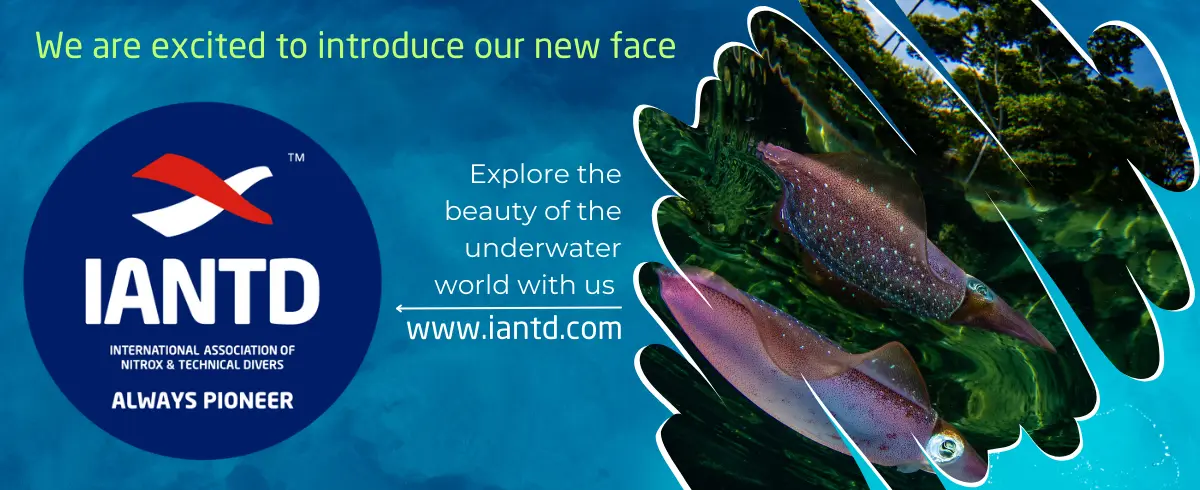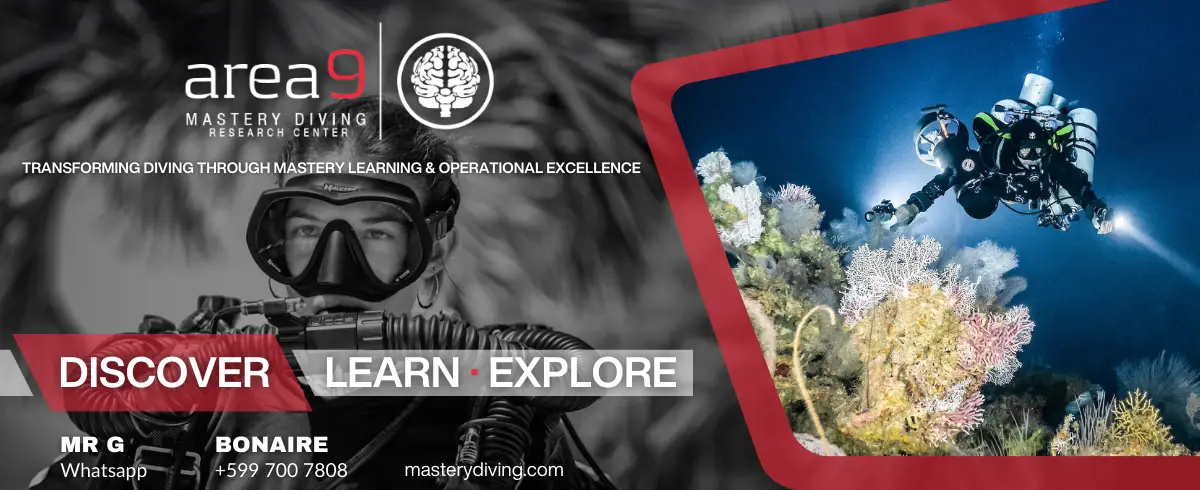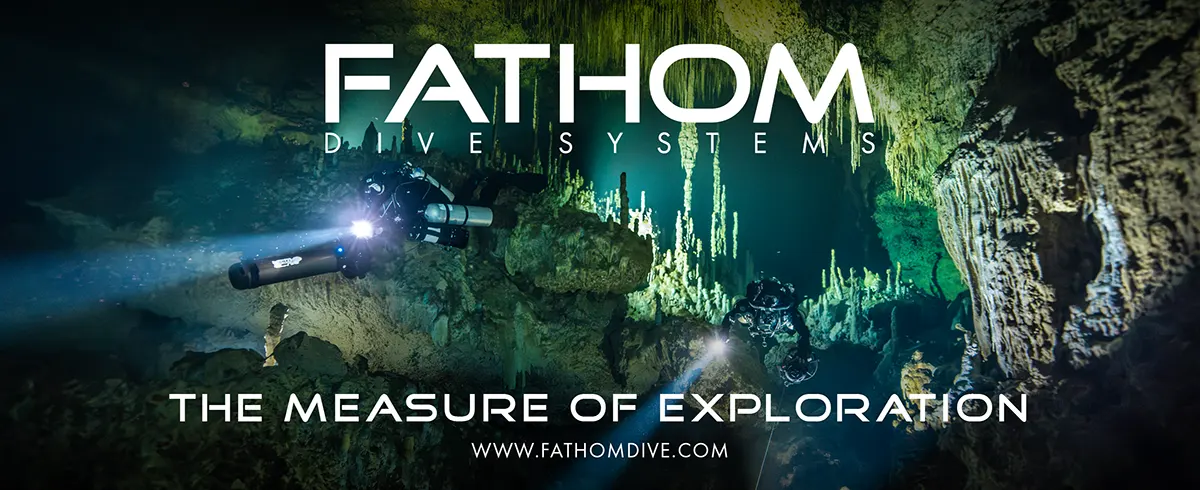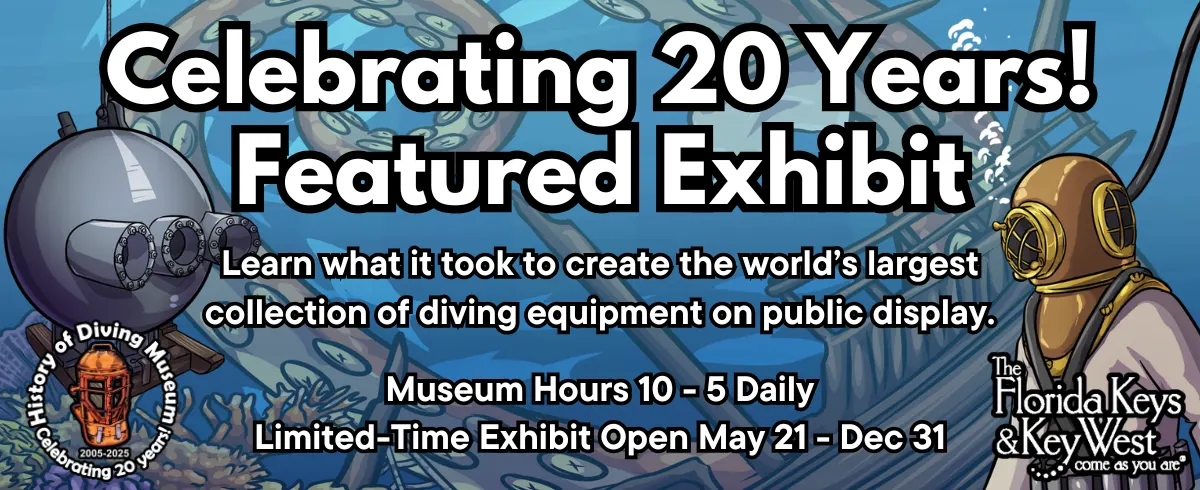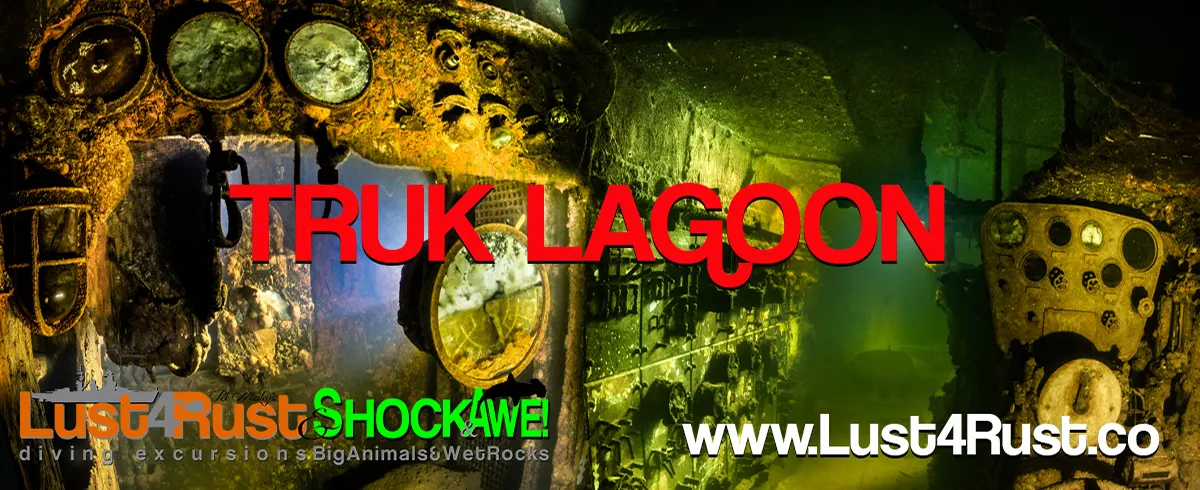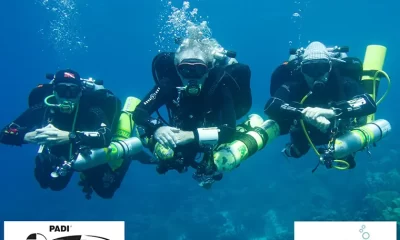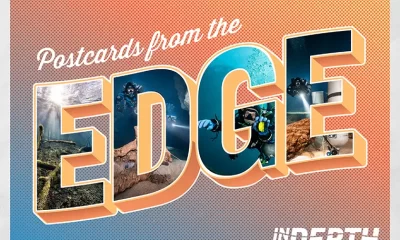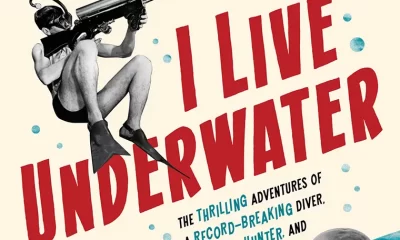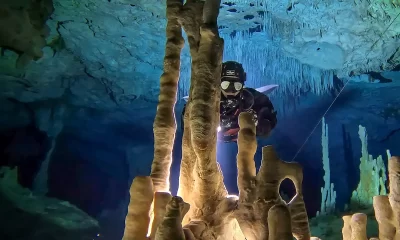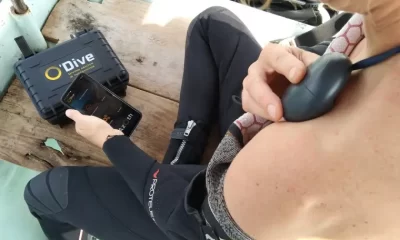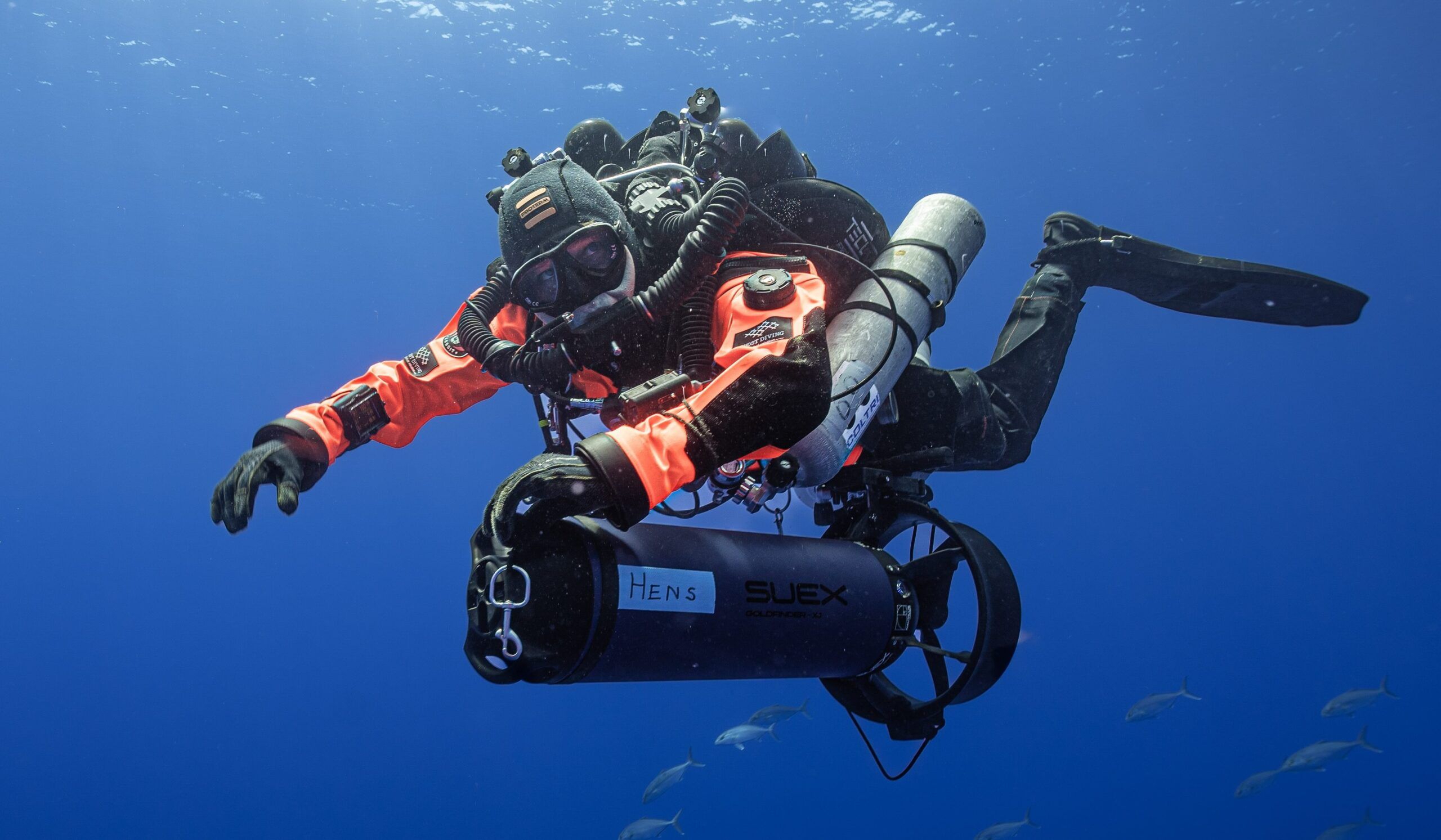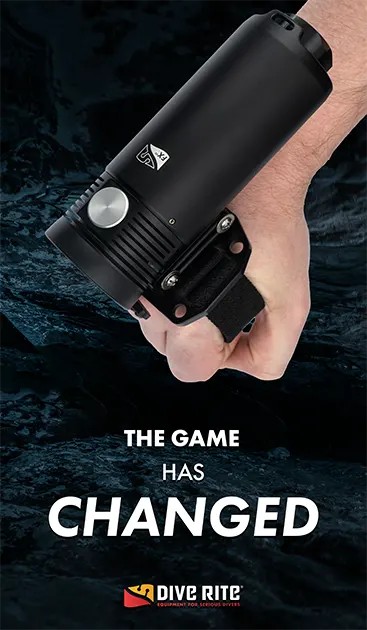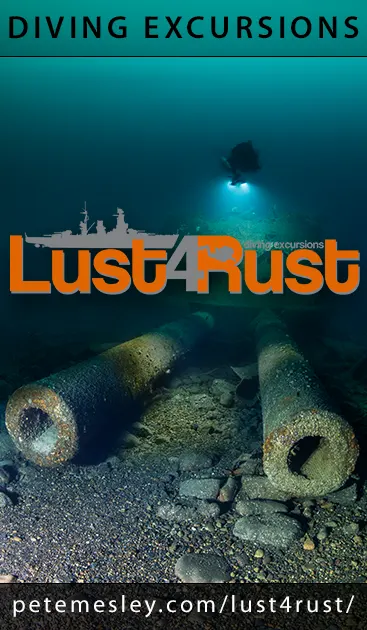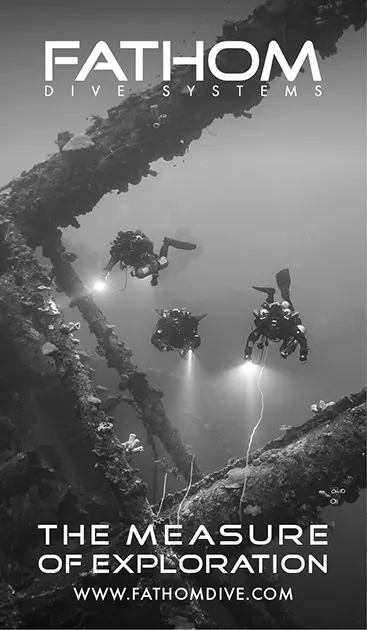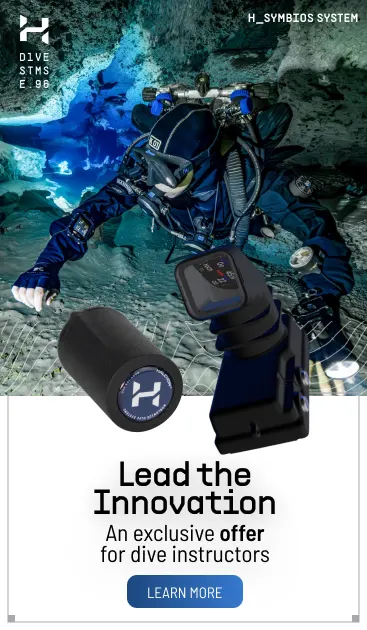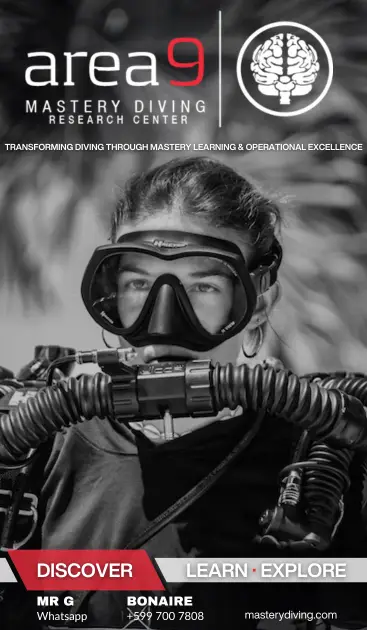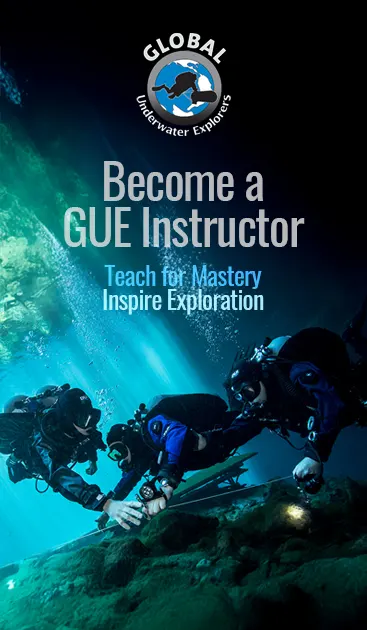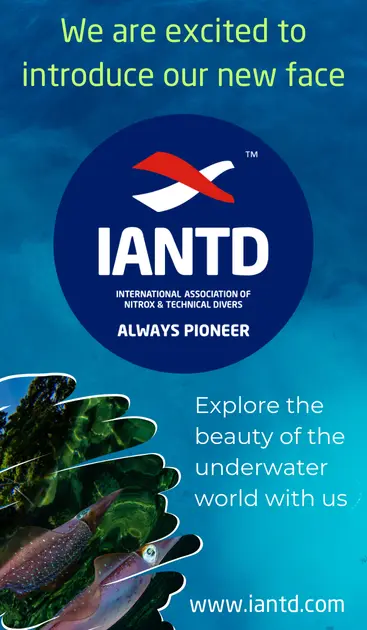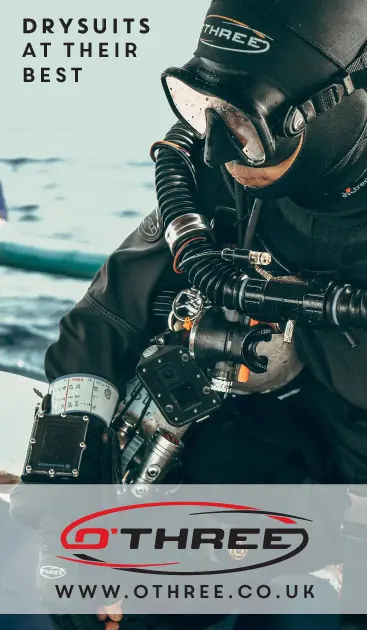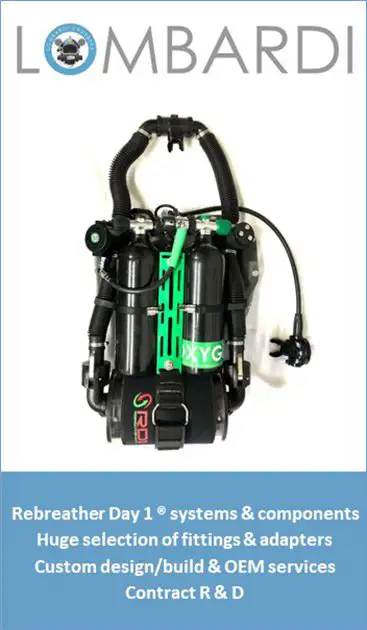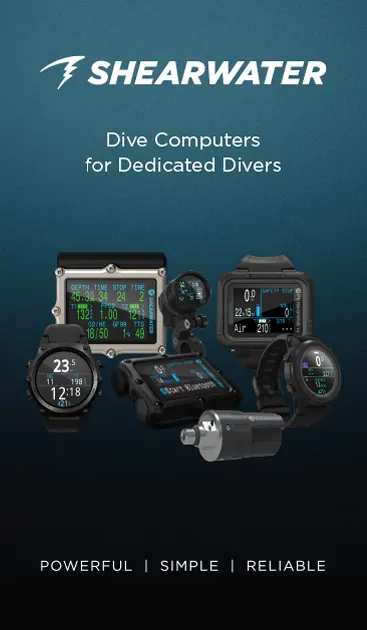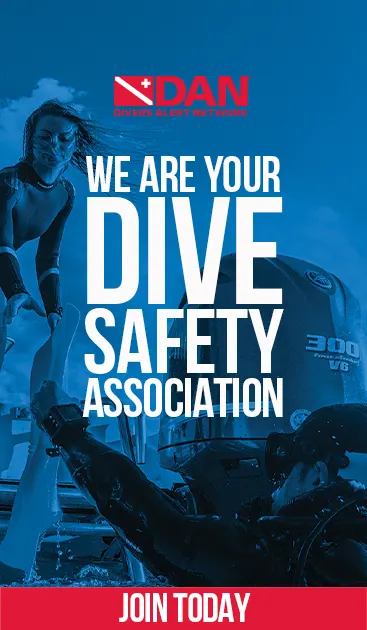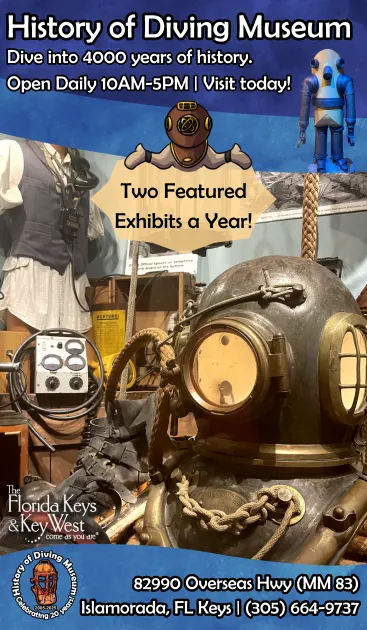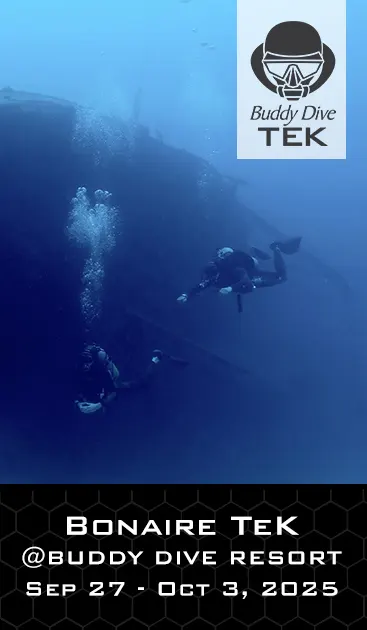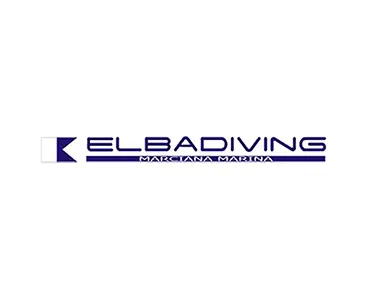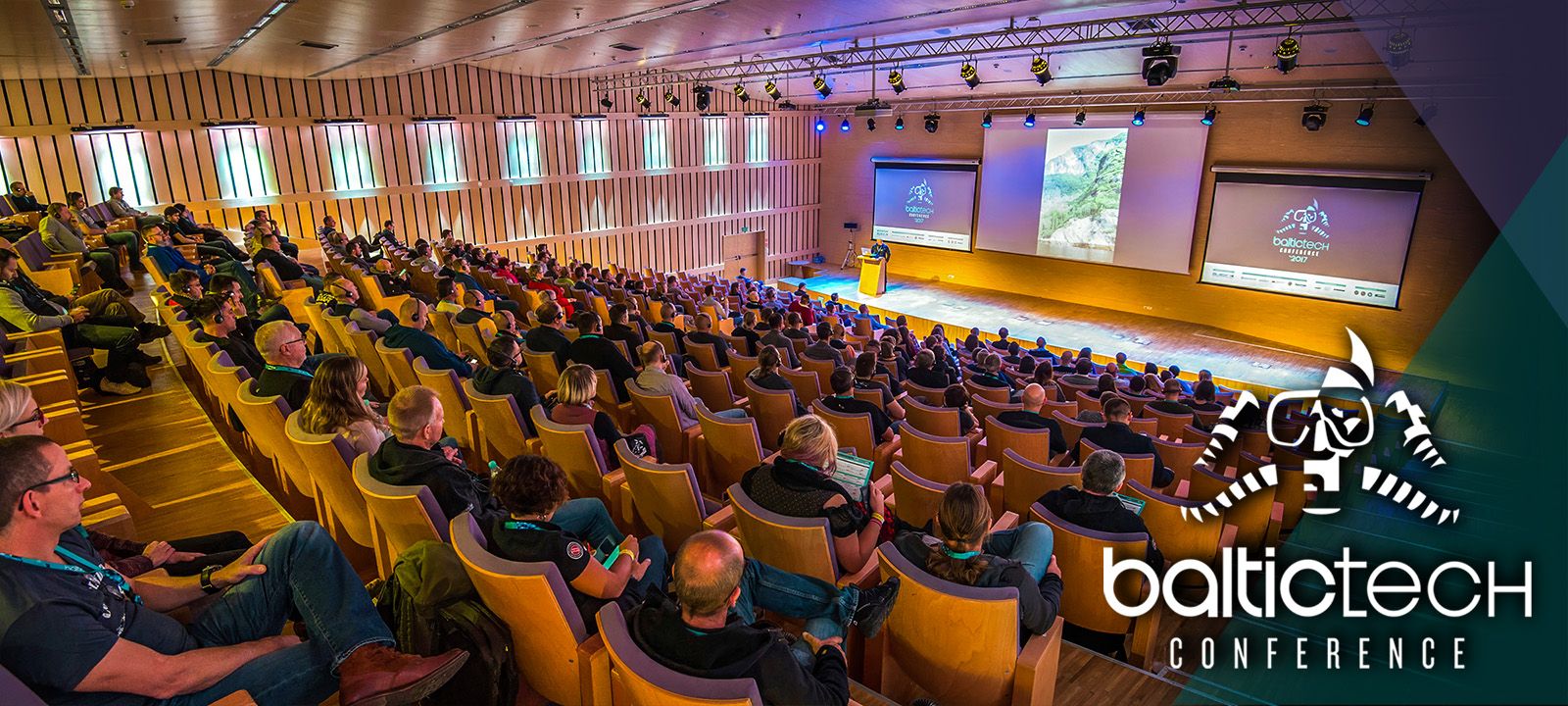
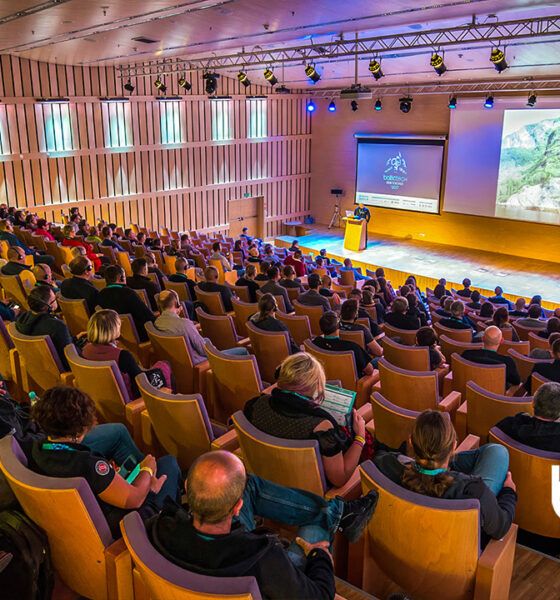
Latest Features
Baltictech: Big, Baltic & Beautiful
Since the emergence of technical diving in the early 1990s, tech conferences have played a crucial role in bringing our community together to share stories, and learn from each other. That is certainly the case for Baltictech, which is one of the oldest remaining tech conferences. Here, British explorer Leigh Bishop reports on the beloved, bi-annual gathering and some of the high points over the years. In addition, we feature a timeline of technical diving conferences & meetings with help from OZTek founder Richard Taylor. C’mon down!
by Leigh Bishop. Images courtesy of Piotr Cybul, Baltictech, Leigh Bishop, Jason Brown, BARDOPhotographic and Phil Short as noted. Lead image: Baltictech main auditorium 2017 w/logo courtesy of Jason Brown.
An 11th Biannual Tech event reaffirms its status as the world’s premier advanced diving conference attracting over 1,000 delegates from more than 20 countries.
Who doesn’t like meeting others who share the same passion and love for something that’s otherwise misunderstood? I love my deep wreck diving—exploring a virgin shipwreck that no one has seen since the day it sank. When I meet someone who shares that same passion, I immediately engage with them, and the conversation can last hours. For me, these people are few and far between and are certainly born from the same mold.
Deep wreck exploration requires a technical diving approach with mixed gases. Without a doubt, tech diving is a niche sport: one that is certainly not for everyone. I don’t have anyone at work or in my day-to-day life who would even understand it, let alone consider engaging in it. My fellow tek divers live far from me; however, when the time comes, we all journey to the cave or boat—wherever that may be. Over these weekends together, the activity and conversation center on all things tech diving. It’s only now and then that I rub shoulders with anyone outside my team, and that’s usually during a technical diving conference.
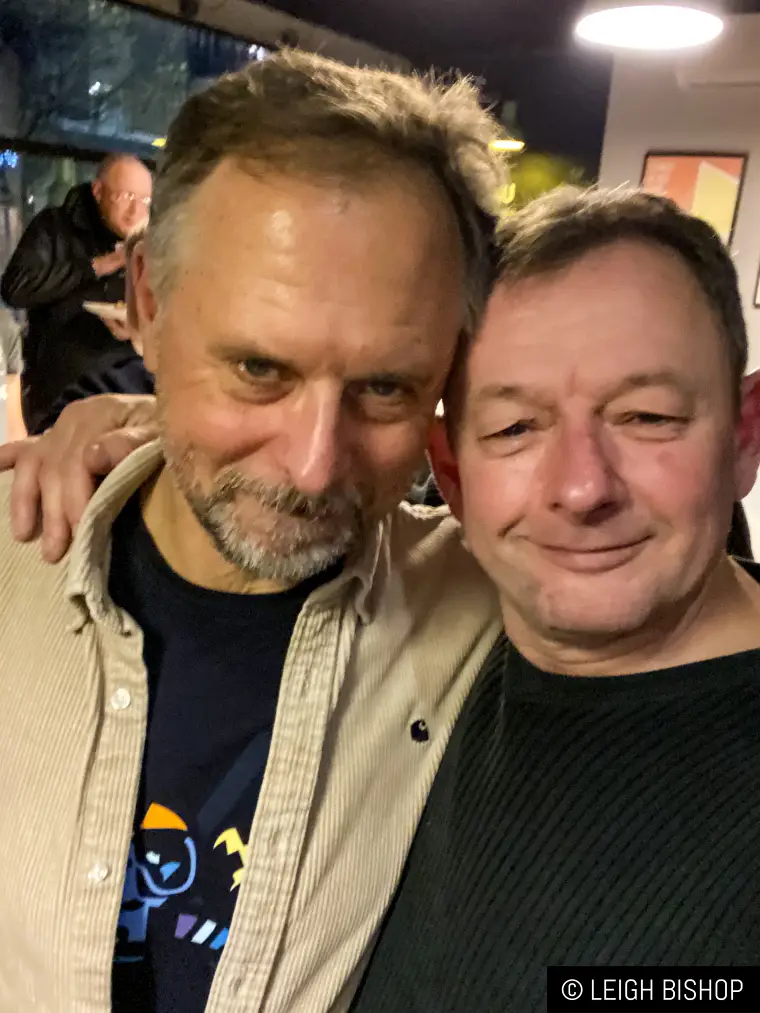
Technical diving conferences have been around for a long time. They provide an opportunity for divers to advance their knowledge, engage with like-minded individuals and make friends. Physical attendance at such an event allows the enthusiastic diver to get their hands on the very latest equipment and speak with those who know where that new technology will take them. It’s a chance to meet and hear what the world’s leading divers have to say in real time and to ask them questions.
Since the 1990s, technical diving conferences have come and gone. However, one has kept its feet firmly on the ground and is clearly here to stay. Baltictech, hosted every other year in Poland, has a formula that works well and seems to be growing stronger with time. Every other year, the Baltic port city of Gdynia, Poland, becomes a global hub for hundreds of technical and recreational divers. Enthusiasts from all over the world fly in to experience this truly international event with an incredibly rich program of distinguished speakers alongside an exhibition showcasing the very latest scuba innovations.
Tri-City: The Early Years
Over the years, Baltictech has hosted more than 150 speakers from all over the world. Attendance at the 2022 conference exceeded the organiser’s expectations, rising above 1,000 divers who had travelled from 21 countries. That same year, the event moved location to its new residence at the Main Library building of the Polish Naval Academy in Gdynia.
The conference has certainly grown into something big and very special; but how did it all start in the first place?

I caught up with two men, Tomasz Stachur and Lukasz Piorewicz, who still run the conference to this day (along with Krzysztof Wnorowski). The guys explained that, sometime between 2005 and 2006, they were returning home from a “tech meeting” in the Czech Republic which sparked the idea for a similar event. Since Lukasz and Tomasz were super active in the Baltic Sea, they decided it would be a great idea to share their knowledge and adventures by running their own similar event like the Czechs had.
“Albeit, with far less alcohol involved,” Lukasz pitches in. “It was all a little crazy—we drank lots with the Czechs.”
With Poland being a big country when it comes to diving—as well as unique equipment production—there was no reason for their idea to fail. They felt positive that they could find good presentation subjects, recruit people to make the event happen, bring them all together, and build ideas for new projects.
Launching their first conference in 2007, they invited international names from the technical diving community: a list that included Richard Lundgren, Andrew Georgitsis, and Kevin Gurr.
Their first conference was a success; 176 people turned up for that first event hosted in the conference rooms of a hotel that still hosts speakers to this day.
English technical diver Phil Short remembers the L-shaped room with a screen erected at the corner: “It was the second edition of the show—and my first show, which certainly was interesting,” said Phil. “It was like presenting to two different audiences, and my head kept turning from one to the other, ensuring they could all hear me. Neither [side of the] room’s audience could see the other.”

The name of their first conference was originally “Tri-City,” as the organisers came from the cities of Gdynia, Sopot, and Gdansk. These cities are close together in northern Poland, and they’re colloquially called Tri-City. The team also wanted to promote their region as a place where technical diving had developed with strength.
Every year, another 100 people attended; as the conference (and technical diving) grew in popularity across the Baltic states, the name naturally evolved to Baltictech.
“With the name becoming now quite famous, we decided to call our team of explorers ‘Baltictech divers’—it just made sense,” Tomasz told me. “Each year we would organize at least ten expeditions under the name Baltictech, and people recognised it because of the famous conference name.”
In the early days, the conference was held each year; although, by 2011, the team realised that the scale was becoming too demanding. So, like the equally large Oztek and Eurotek conferences, they decided to run Baltictech biannually, hosting opposite years to Eurotek to avoid any conflict in the Northern Hemisphere.
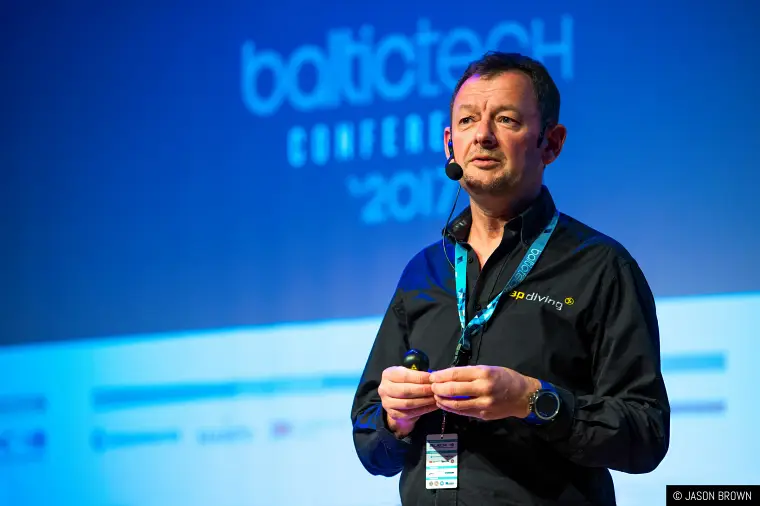
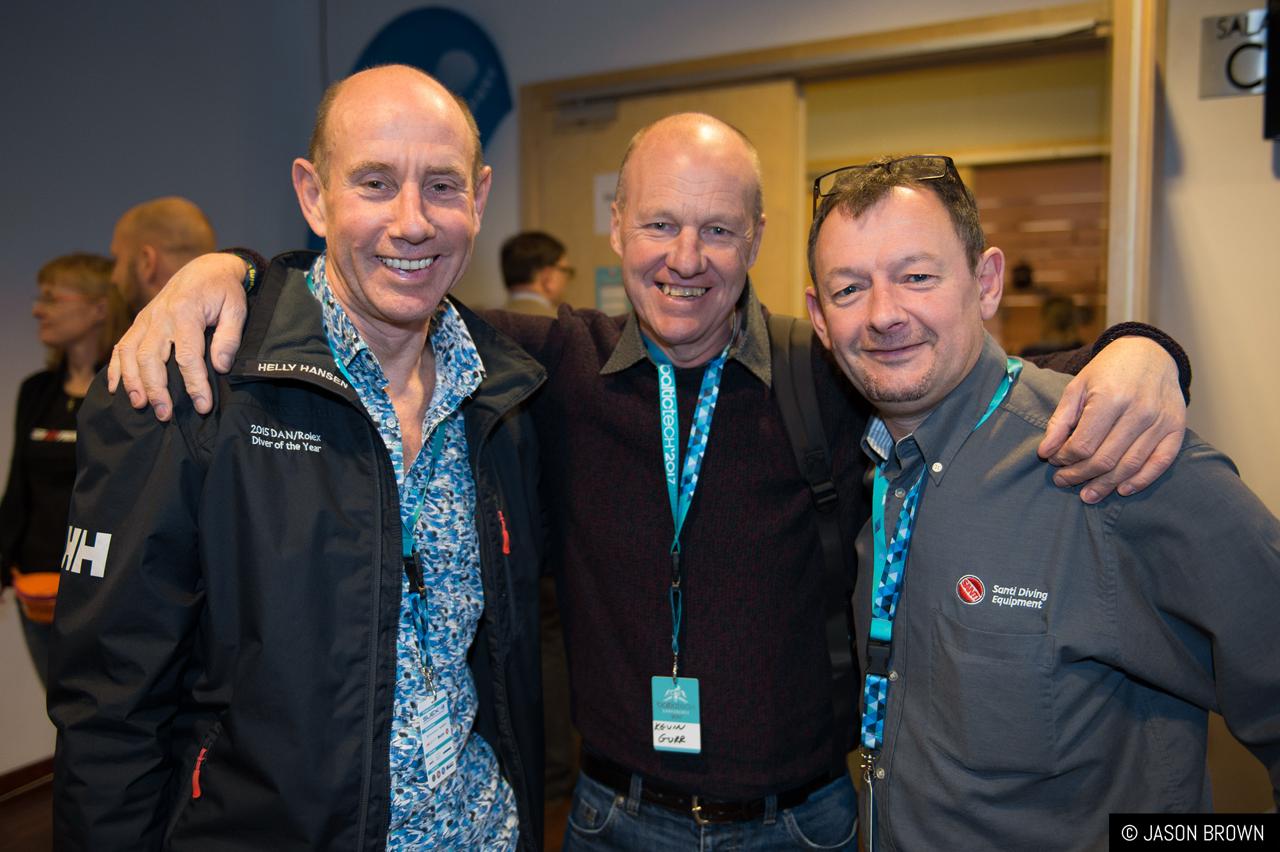
The Secret to Longevity
Tomasz, Lukasz Piorewicz, and Krzysztof are divers first and foremost. They host this conference because they love doing it, but they also believe in it. Each has their own responsibilities within the organisation, which, day-to-day, align seamlessly without confusion. After interviewing them, I was left thinking that this is perhaps the secret formula—the reason why the conference is still going strong today.
“I’m responsible for technical issues and exhibitors; we have a big trade exhibition in halls and corridors,” said Lukasz.
“Speakers and general stuff for me,” added Tomasz.
“Delegates and reception for me,” Krzysztof followed.
There’s no doubt that the conference has a very international feel to it; however, that aspect has evolved naturally despite its core roots still being very much embedded in the Baltic Sea landscape. What else could we expect with three outstanding tech divers at its core?
I have been attending Baltictech since 2013. For me, the highlights are hearing hot off-the-presses presentations of new and exciting discoveries. My passion falls in favor of shipwrecks; at Baltictech, I’ve heard about everything from WWII ships like the German Karlsruhe to significant battleships that sank as far back as 1564, such as Mars. Every speaker that steps up to the Baltictech stage makes every hour of the event a highlight as their true passion for their topic oozes from their vocabulary—whatever language their native tongue may be.
Special Moments
Phil Short has been coming to Baltictech since its second edition in 2008. Phil does his best not to miss an event unless he’s away on a diving project. For him, this conference is friendly, incredibly international, and it provides fresh new material everyone can learn from.
As a speaker, one of his personal highlights was a presentation he delivered in 2013 only months after working on a project with the US Deep Caving team. Phil had spent three months in the jungle, 45 days underground, 12 km/7.5 mi horizontal in the water, and 1.2 km/.75 mi vertical diving the end of one of the world’s most challenging and formidable caves, J2 cave.
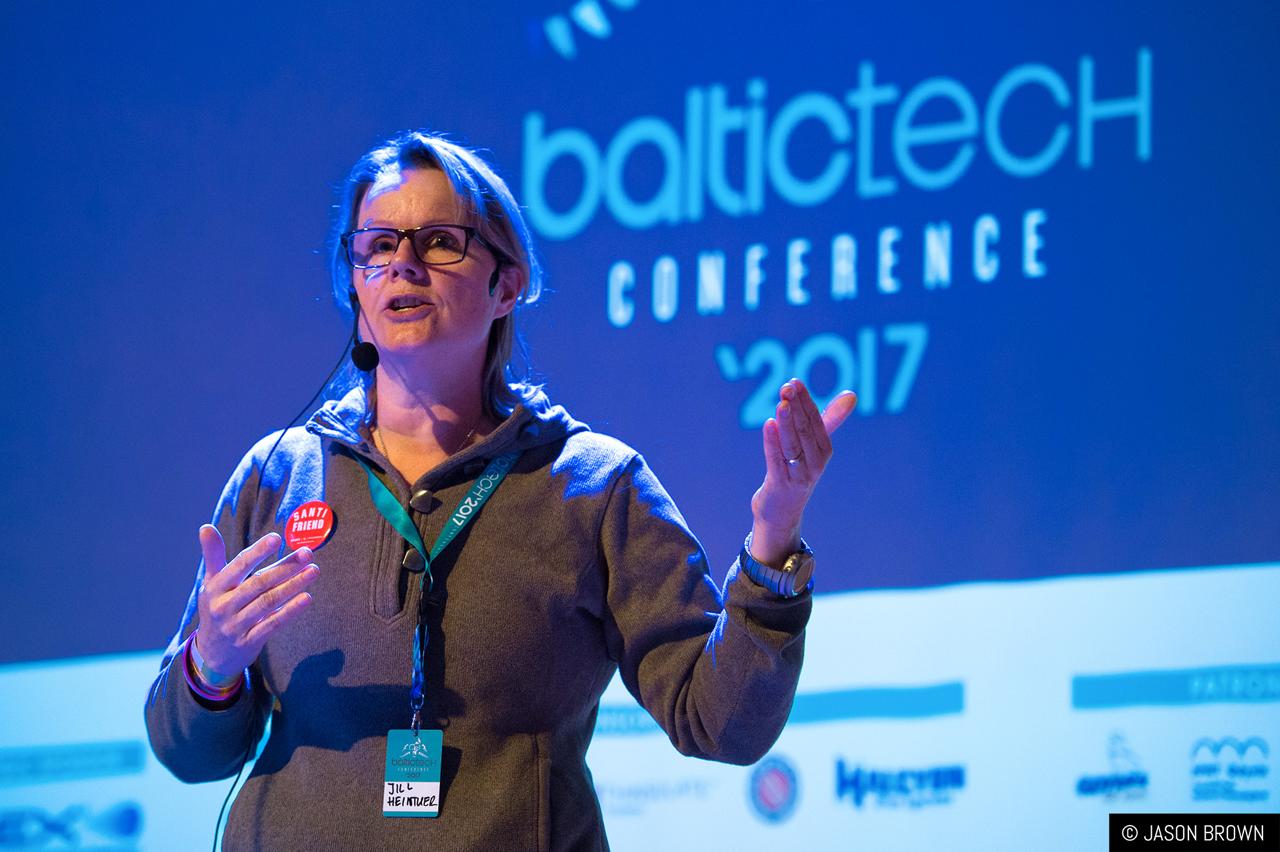
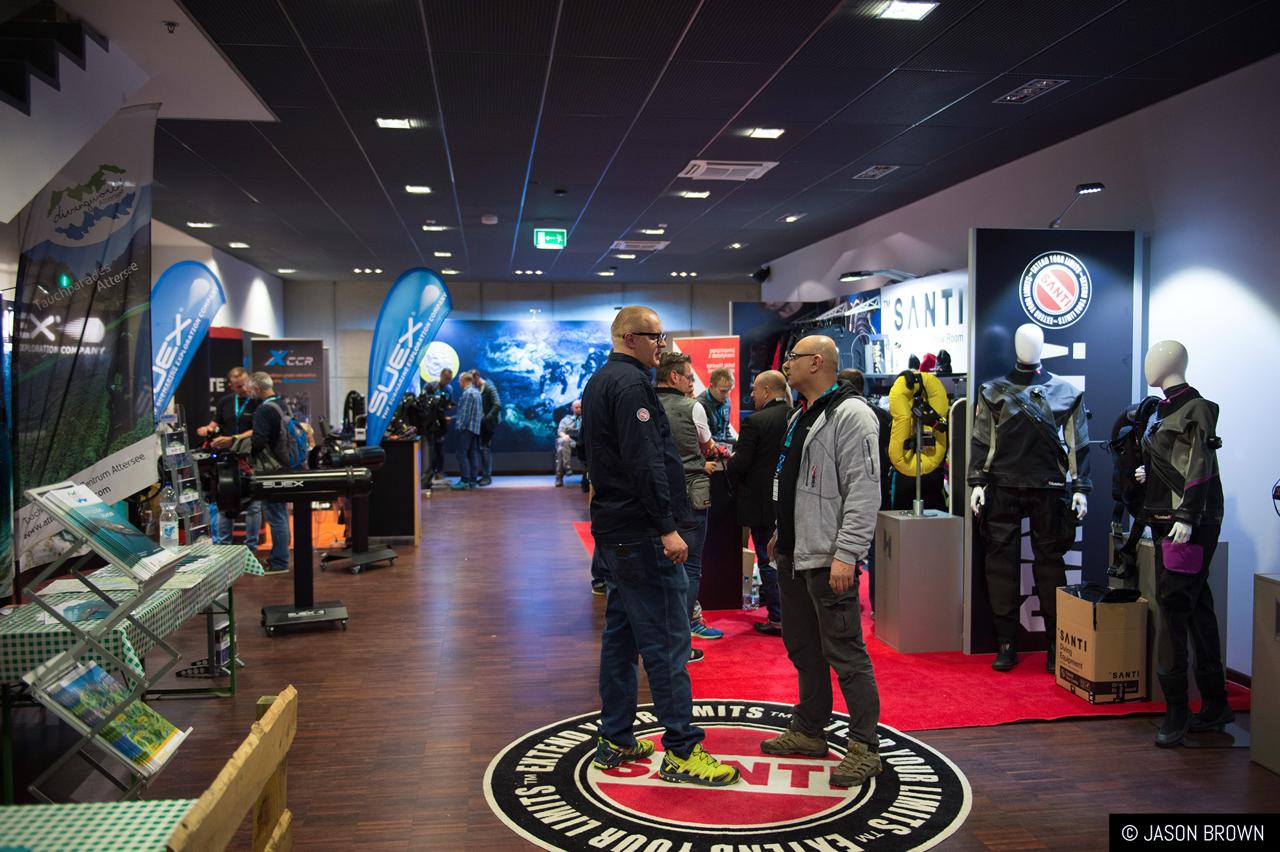 All the latest tech equipment is on display at Baltictech. Photo from Baltictech 2017. Photo courtesy of Jason Brown, BARDOPhotographic.
All the latest tech equipment is on display at Baltictech. Photo from Baltictech 2017. Photo courtesy of Jason Brown, BARDOPhotographic. 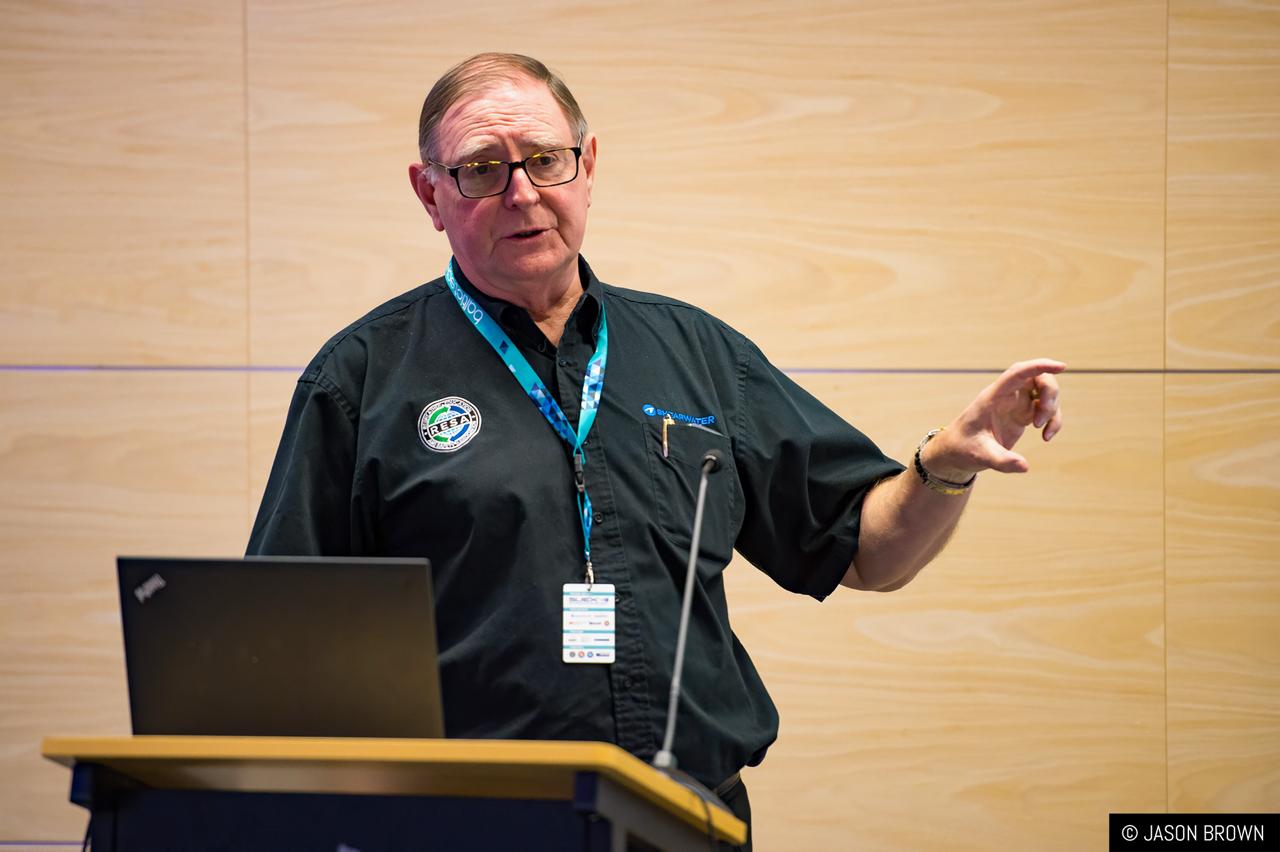
There were 50 people on that project, Phil told me, 75% of whom were Polish and Phil entertained a packed audience with details of the project, people filled every seat in the house as well as the aisles. At his conclusion, many of the project members joined him on stage, including lead diver Polish Marcin Gala, a special moment for Phil. He also told me that he would never have been a participant in that milestone project, let alone a lead explorer, had he not met expedition leader Dr. Bill Stone at a diving conference. To Phil, the networking process and sharing of information is a huge part of attending these conferences.
One of the highlights of the conference is undoubtedly the prize draw at the end of the day on Saturday. This seems to attract everyone into the main hall where all delegates automatically enter the drawing and win some truly brilliant prizes. This final part of the day is filled with humour, roars of laughter, and some funny on-stage antics by the Baltictech team, to say the least.
The Baltictech Santi party is another highlight of the weekend and runs like a “Who’s Who” of technical diving in one room—with plenty of drinking thrown in.
For many, though, the conference speakers are the primary draw. These outstanding individuals influence and remain in the memory of the conference delegates. The corridors are also filled with world-class divers, many of whom have been previous speakers at Baltictech The entire event is somewhere you need to be, and everyone will give you their time. You only have to go to the conference website to see the rich list of historic speakers.
Photographers and videographers are also well catered to here; presentation topics range from shooting in extreme conditions right down to how to pick up a camera for the first time. Indeed, Baltictech is lit up with the very best in underwater imagery. As an underwater photographer who began a career during the era of film, I have witnessed the advancement in technology that now allows everyone the ability to bring home brilliant underwater images. Much of this brilliant technology is on display at Baltictech: cameras, housings, scooters, rebreathers. Well, just about everything you want to go technical diving with is on display.

Something For Everyone
Baltictech is a two-day conference and, without a doubt, offers something for everyone—quite frankly, it offers more than you could ever expect. Set in an extremely professional environment, one could mistake the main presentation hall for that of a UN conference rather than a gathering of enthusiastic scuba divers.

As delegates enter, they are handed a headset and receiver to which they will tune into their choice of language during each presentation. A team of translators behind the windows of the control suite at the rear of the theatre work incredibly quickly, not to mention intelligently, to relay exactly what the presenters are saying. All one has to do is tune in to the correct language channel, adjust the volume preference, and then sit back to enjoy the many informative and stunning presentations. With three auditoriums operating at any one time, don’t be fooled into thinking you need to be a super deep tek diver to join any of the audiences. Yes, these presentations are focused on advanced and technical diving; however, sport divers or even those new to diving will certainly find their feet here, let alone a bucketload of inspiration. Each conference offers everything you need to know about advancing your diving.

In 2024, instructor and conference organizer Krzysztof Wnorowski spoke about how to start technical diving. Every speaker’s material is generally focused on advancing your knowledge and level—whatever that may be. These talks will inspire you and your friends to find your path to a more adventurous time underwater.
The organizers are big on safety, and they tread carefully when choosing presenters. Their intention is to inspire not only the current generation but also the next one. They avoid difficult topics—for example, dangerous activity or accidents—and you won’t be listening to someone promoting their recent 1000+ ft record-breaking bounce dive. The Baltictech team simply do not buy into this area of technical diving, mainly because of its inherent history of failed attempts or covered-up incidents. The organisers much prefer to promote safe diving practices. Moreover, they favour true underwater exploration that has been meticulously planned by experienced divers. The implementation of safety is clear without being forced.
The 2024 conference, as usual, boasted a brilliant lineup of world-class speakers. For instance, Professor Simon Mitchell talked about the recent super deep hydrogen dives in New Zealand. Mitchell is from the Department of Anaesthesiology at the University of Auckland, New Zealand. As a key speaker, Professor Mitchell always manages to fill the auditorium with his medical lectures. Boring, they are not; he is dynamic and has managed to craft a way to deliver material in his field with an engaging, and not to mention, humorous approach.
Professor Jacek Kot, Mitchell’s Polish counterpart, is an equally big draw for the Baltictech stalwarts. My Polish is not that great (in fact, it’s dreadful) so I switched my channel to the English translation and enjoyed listening to his analysis of the DAN Europe database and his exploration of the risk factors in recreational diving.
Swede Emmy Ahlén brought the Baltic Sea alive with her underwater photography of shipwrecks that lay on the seabed after meeting their demise from storms, naval battles, and… well, sheer bad luck.
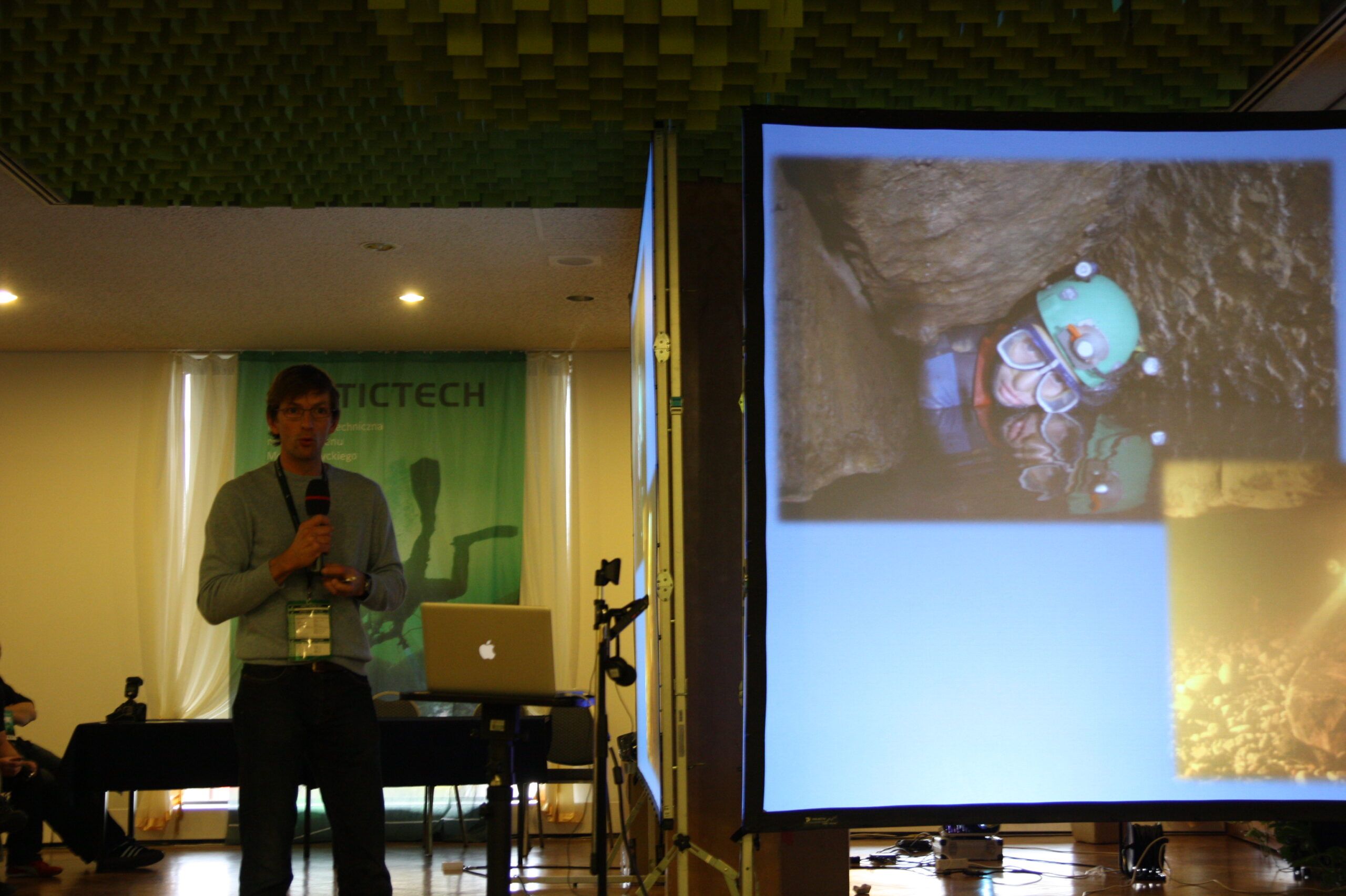
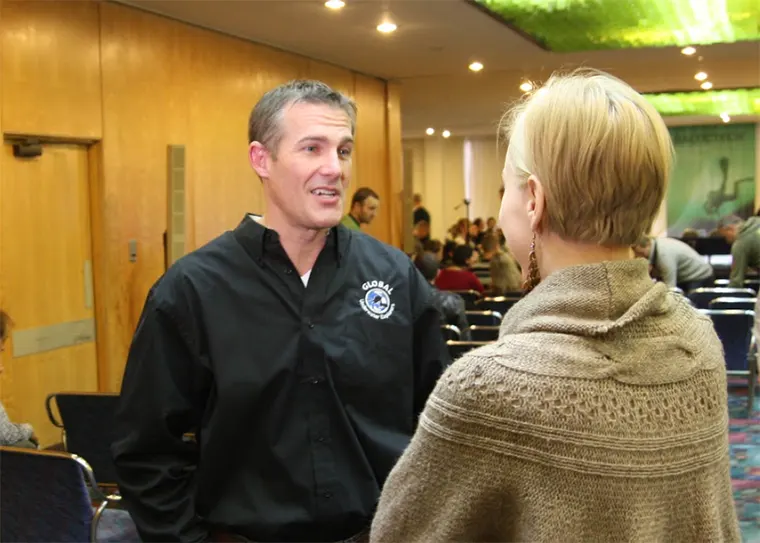
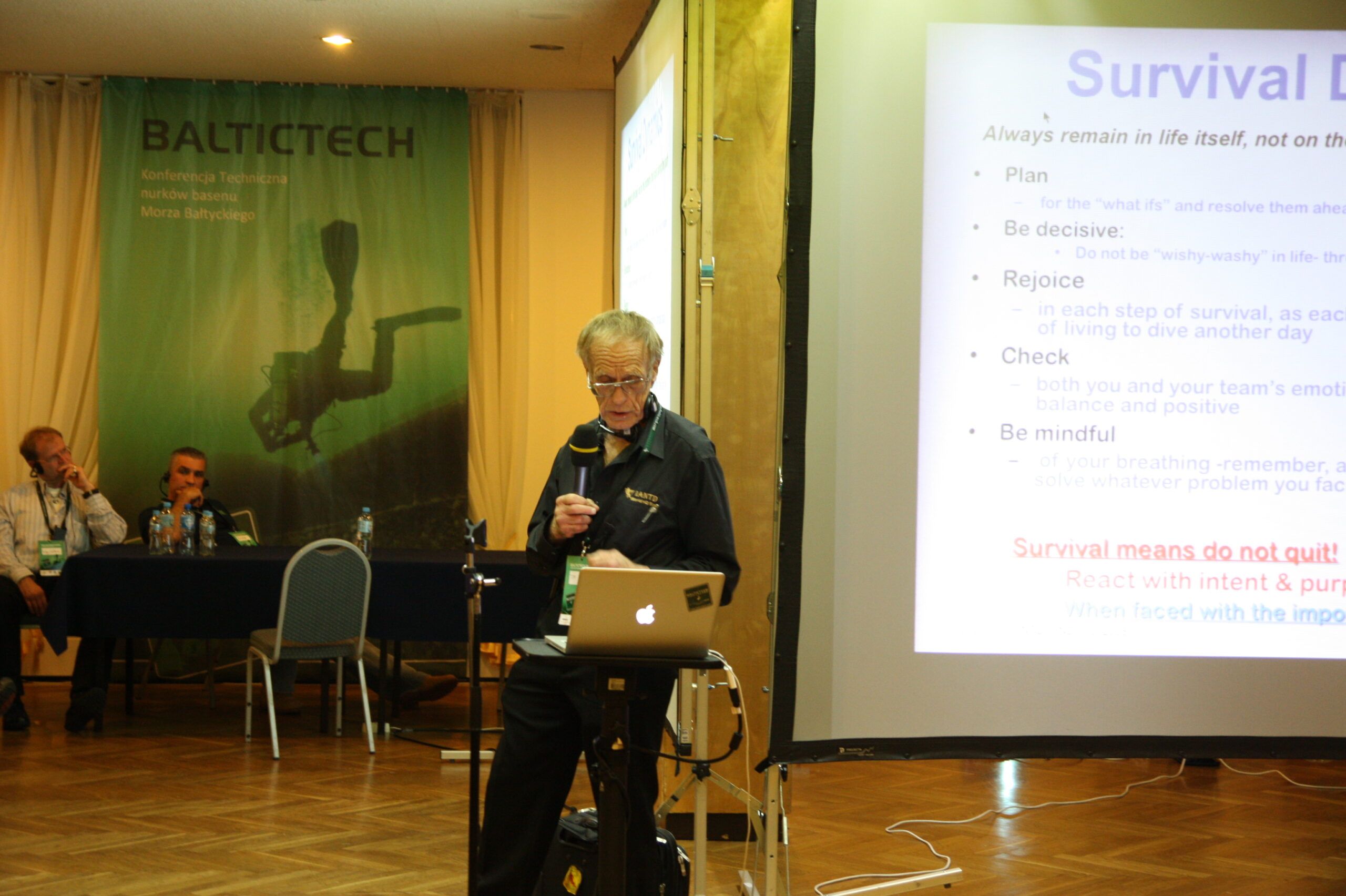
Likewise did the entire Baltic Sea Tech diving team enlighten the audience about new shipwrecks they had found and explored since the conference two years prior. This regular slot for the team brings us up to date with footage and photographs you simply would not find or see anywhere else. Often humorous, and complete with antics of what goes on during their expeditions topside as well as underwater, this is always a big draw for regular attendees.
Then there was the amazing Baltic shipwreck 3D Photogrammetry from the likes of Bartłomiej Pitala—not to mention the work focused on the First World War in the Gulf of Finland by divers Jouni Polkko and Juha Flinkman.
Please don’t be fooled into thinking—This conference is not for me because it’s all about diving in a part of the world I’m likely to never visit! While, indeed, the conference will always capitalise on its rich local origins, the organisers ensure that exciting diving is accounted for on the global level. At the 2024 conference, I witnessed some stunning photography and video from places such as Gallipoli, Jutland, Norway, Malta, Finland, Italy, the Aegean Sea, as well as mines and wrecks in England.
Baltictech Makes Things Happen
The bustling hallways and trade stands certainly give the Baltictech conference a special atmosphere, and I’ve often said that it’s events like this that open doors to greater places.
People rub shoulders and meet other people at a conference. They share stories and ideas over a beer or coffee. They become someone in the right place at the right time and, in doing so, find themselves integrated into someone’s diving project they would have never realistically been involved with had they not physically met them. I know so many people who have ended up organising brilliant exploration projects that have been seeded at such conferences. Physically being at Baltictech makes things happen.
Simon Mitchell told me the only thing he enjoys as much as diving is sharing his knowledge and experiences with fellow divers and explorers at events like Baltictech. I echo this, and I know many of the other speakers do the same. Another great thing about attending is that any one of the speakers will be at hand to talk to you and answer your questions or just sit down with you for a chat.

Baltictech is only one weekend every two years; it’s also an opportunity to travel to a beautiful, inexpensive country that has so much to see. The Polish people are warm and welcoming, and jeez do they love their scuba diving, and so they should. After all, living at the southern gateway to the rich underwater museum that is the Baltic Sea—what is there not to be happy about?
So, what of the future of Baltictech? Organiser Tomasz Stachura was quick to answer when I pitched that same question to him.
“We really want to promote safety and adventure but more so excite the future generation to share [in] what we have now; so, for me, the goal is to encourage new divers to enjoy diving safely,” he said.
I turned to Lukasz. “Well, we have many shipwrecks to explore that have never been dived, so I’m sure all divers will be interested to hear of them, just as we will be interested to hear of theirs.”
Whether you are a scientific diver, into history, a hyperbaric or decompression buff, the most advanced diver, beginner, photographer, cave diver, or wreck diver, Baltictech is for you. Although, I will say that if you like pretty fish…You may be a little disappointed.
Why not plan a weekend at the next Baltictech? Who knows, it may open a new door to the future of your diving.
Technical Diving Conferences & Meetings Past and Present
by Michael Menduno and Richard Taylor

Enriched Air Nitrox Workshop: 1992
Helped clear the way for nitrox adoption. Location: New Orleans, LA
Organizers: Glenn Butler, RW Bill Hamilton, Dick Long, Michael Menduno

The Tek.Conference: 1993, 1994, 1995, 1996
Orlando, Orlando FL, Las Vegas NV, New Orleans LA, San Francisco, CA
Organizers: Michael Menduno

aquaCORPS’ EUROTek: 1995
Birmingham, England
Organizers: Michael Menduno & Bernard Eaton

aquaCORPS’ Asia.Tek: 1996
Singapore
Organizers: Michael Menduno & Rainer Sigel

The Rebreather Forum: 1994, 1996, 2012, 2023
Episodic Forum: Key West, FL (1994) Redondo Beach, CA (1996), Orlando, FL (2012) and Valletta Malta (2023)
Organizers: Michael Menduno & Tracy Robinette
Richard Vann organized RF3.0 (2012) with support of AAUS, DAN & PADI.
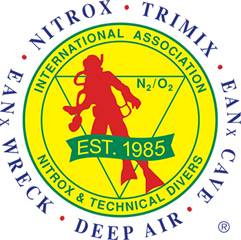
IANTD UK Technical Diving Conference: 1995, 1996
Bristol and Coventry, UK
Organizers: Kevin & Mandy Gurr w/ Phil Short

OZTEK Advanced Diving Conference: 1999-2024
Biannual Australia conference: Sydney, Melbourne, Adelaide
Organizers: Richard Taylor, David Strike, Sue Crowe

Technical Diving Conference: 2008
Scientific meeting held in Durham, NC USA
Organizers: Richard Vann, Divers Alert Network

Baltitech: 2007-Present
Biannual Conference in Gdansk, Poland
Organizers: Tomasz Stachura, Lukasz Piorewicz and Krzysztof Wnorowski

EUROTEK: 2008-2018
Biannual conference: Birmingham, England
Organizers: Leigh Bishop, Carl Spencer, Rosemary “Roz” Lunn, Mark Dixon, and Jason Brown

TEKDive USA 2014-2018
Biannual conference: Miami FL (2014, 2016), Orlando FL (2018), Orlando FL (2020 cancelled due to COVID)
Organizers: The Thornton Family

ADEX TEKDIVE Conference ASIA: 2012-Present
Annual talks, Singapore
Organizers: David Strike & John Thet
DIVE DEEPER
Rebreather Forum: Rebreather Forum Archive
InDEPTH: DIVING TALKS: Explorers R’Us!
InDEPTH: GUE 25 Anniversary Conference Round Up
Divernet: Deep Dive Into Rebreather Forum 4: The Future of Diving by Jason brown
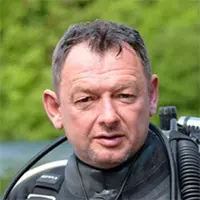
Leigh Bishop is a British shipwreck explorer and pioneer of deep wreck mixed gas diving. He is a well-known deep wreck photographer, and his research has led to the discovery and identification of hundreds of shipwrecks. He has been a member of the most significant deep shipwreck expeditions and scientific projects that have carried the Explorer’s Club flag. Leigh has been featured on many television shipwreck documentaries and worked as a deep-water cameraman for National Geographic, History Channel, ITV, Channel 4, and other global networks. He is a prolific writer, speaker, and lecturer of shipwreck exploration globally. Over the last two decades, his photographs and articles have appeared in countless magazines, books, and major newspapers. He was the man behind the original concept of Eurotek, The Advanced Diving Conference. In recent times, his focus of attention is directed towards forthcoming personal book projects.

